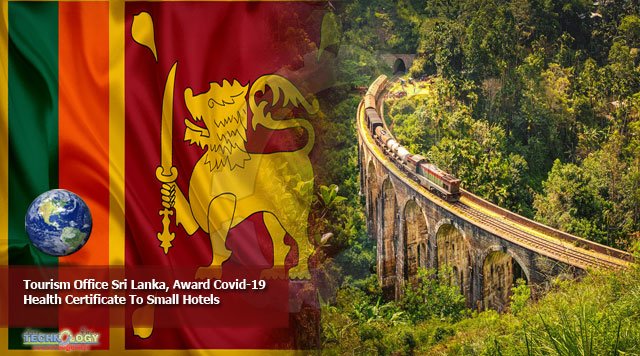Health certificate, Sri Lanka’s small hotels which have developed from serving tourists through global booking engines will be given provisional licenses to get Covind-19 health certification

Health certificate, The Sri Lanka Tourism Development Authority (SLTDA) said about 60 percent of the industry is estimated to be in the small and medium sector and there were about 50,000 businesses providing rooms through booking agencies like Agoda.com, Booking.com and Airbnb.com.
“After a series of consultations with the SME sector and to support them during this pandemic and in any future crisis, SLTDA encourages the SMEs in the tourism sector to register with us,” Director General of SLTDA Dhammika Wijayasinghe said in a statement.
“To help the SME sector, we have decided to relax our registration criteria. They can initially opt for a provisional license for 6 months and they could register with us fully later.”
Sri Lanka is planning to open the tourism sector with health certification but many of the smaller entities are not registered with the state tourism authority. Sri Lanka has made strong gains against Coronavirus.
Health certificate, The quality and service levels of listed rooms are made transparent (disclosure regulation) by a running review and rating system, backed up by complaints and refund procedure (usually booking credits) enforced by the booking engines which some frequent users say is superior to any state regulated system in those countries.
State regulators usually end up with broad-brush merit regulation which could be subject to regulatory capture and corruption. State-driven standards have rules such as room numbers which are completely irrelevant to users, critics say.
Sri Lanka recently announced credit and subsidy scheme for Coronavirus hit tourist hotels which the unregulated providers could not get.
“Tourism is undoubtedly one of the most affected industries in the outbreak of COVID-19 pandemic and to help the industry, the Cabinet approved a series of relief measures to tourism service providers registered with Sri Lanka Tourism Development Authority,” Sri Lanka Tourism chief Kimarli Fernando said.
“Unfortunately, since 60 percent of the tourist service providers in Sri Lanka belongs to the informal sector who haven’t registered with SLTDA, many have not been able to avail the relief measures which is brought to authority’s notice.”
True global tourism emerged a niche premium (Grand Tour style) activity limited to a few in the nobility and rich persons after the 1960 when the so-called hippie trail opened up allowing global mass tourism from Central Asia to the Far East, raising living standards of ordinary people.
Unlike high end tourism, mass tourism involves high people-to-people contact, longs stays and leads to eh build up of long term friendships, joint ventures (where regulations permit) and service innovations.
The overland hippie trail ran from Europe (Americans flew over the Atlantic) via Turkey, Iran, Pakistan, Afghanistan, Nepal, India (Goa), Sri Lanka’s Hikkaduwa was an offshoot), Thailand, Malaysia (Penang), Vietnam, Indonesia to Australia, though very few made it to the end.
Travellers used a BIT Guide.
Though the trail was disrupted after the Soviet invasion of Afghanistan and Middle East unrest in the late 70s as well as well as nationalist visa regulations most of the current Asian tourism hotspots were popular watering spots in the trail.
Asian tourism also got another boost after the advent of now-defunt AsiaRooms (started by expat entrepreneurs in Thailand) and Agoda.com (expat entpreneurs based in Singapore) now owned by Priceline/Booking group.
This news was originally published at economynext.com